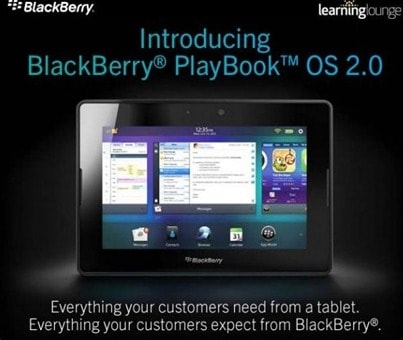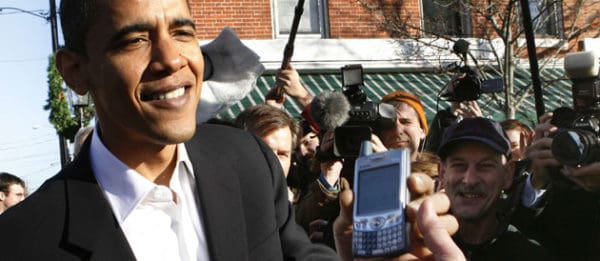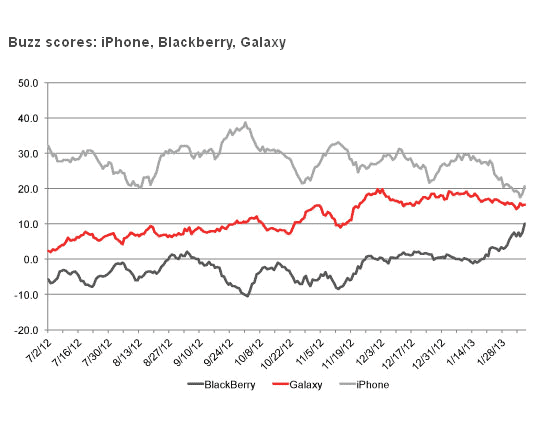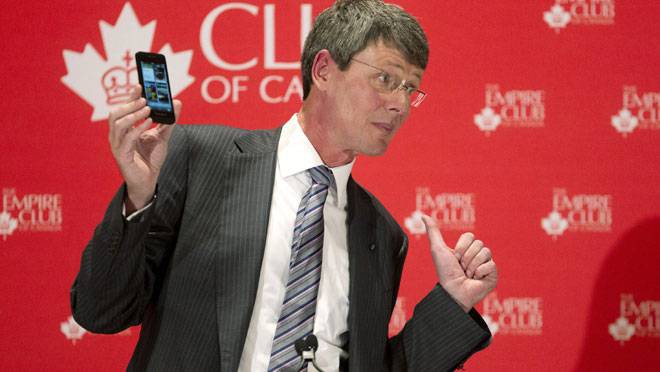
On March 7th, Apple will launch the iPad 3, the third version of their wildly successful tablet in twenty-three months and the first without Steve Jobs at the helm. But, nearly two years on, are cracks beginning to form in the armor of its prestigious device?
No one could have expected that Apple could hang on to their remarkable first-mover advantage forever, but the drop in the iPad’s market share is noteworthy. In November 2010, Boston based research firm Strategy Analytics estimated that Apple owned 95% of the tablet market. Just over fourteen months later, Apple is barely selling six out of every ten tablets sold. That’s still a dominant share of the market, by any standard. But the extra space has allowed some tablets such as the Kindle Fire to flourish and others, notably the BlackBerry PlayBook, to be granted a chance at a second life.
The Washington Post recently noted that the new iPad faces a deluge of competition its predecessors did not. The premium price that comes from Apple’s cool factor will be challenged by tablets with increasingly robust specs, many that sell at half the price of the iPad.
The profile of device Apple is losing market share against is simple to define. Cheaper tablets like Amazon’s Kindle Fire, despite the lack of respect it gets from new Apple CEO Tim Cook are beginning to take meaningful market share.
Late in 2010, Apple predicted it would actually gain market share against “sub-par” tablets, but that didn’t happen. In Q4, 2011 The Kindle Fire sold two million units, while Apple shipped 15.4 million iPads. But is cheap enough? A closer look proves the razor blade model, selling the hardware (razors) cheap and making the difference up on software (blades) has become an option that allows tablet makers to sell at or below cost. The Kindle Fire, which sells for $199, has an estimated bill of materials that one analyst pegged at $201.70. Of course, Amazon could, without hyperbole, be described as the Gillette of online retail, the Seattle-based company has far and away the world’s largest operation.
________________________________________________________________________________________________________________________
This story is brought to you by Serenic (TSXV:SER). Serenic’s market cap of $3.18 million (as of January 27th, 2012) was less than its cash position of $4.03 million (as of Q2, 2012). The company has no debt. Click here for more information.
________________________________________________________________________________________________________________________
But what about the once left for dead BlackBerry Playbook? With Playbook sales lagging, (IDC reported that RIM was able to secure just 4.9% of the tablet market in 2011) and an inventory buildup that was approximately three-quarters of a billion dollars more than it was just six months prior, RIM decided, late in November of last year, to offer promotional plans that lead to retailers slashing the price of Playbook’s by $300. As a result, Toronto-based Solutions Research Group says the BlackBerry PlayBook now has 15% of the Canadian tablet market. While the company has yet to provide numbers, at least a million BlackBerry Playbooks have now been sold.
RIM’s move on the PlayBook followed HP’s months-earlier decision to get out of the tablet market. On August 18, less than fifty days after its HP TouchPad debuted, the company axed the product and cut the price to clear inventory. HP offered the 16GB TouchPad for $99 and the 32GB model for $149. The result was a frenzy that actually caused HP’s website to temporarily crash.
The Kindle Fire, which was released on November 11, was essentially the third major confirmation that there was room in the market for a cheaper tablet. Amazon has clearly carved out a space facilitating its own content. And, despite improvements to its App World, and the addition of music and movie services, the Playbook will almost certainly be playing catch up, content wise to both Apple and the Kindle Fire. Amazon, however, kept the cost of the Kindle Fire down by not including things like a camera, microphone, microSD card slot, HDMI port, 3G or 4G wireless radios. The BlackBerry Playbook and iPad, of course, have all those things. So in a suddenly competitive environment, where could BlackBerry carve out it own market space? Four areas stand out.
1. Bang for the Buck
For those looking beyond marketing and purely at what a tablet can do, the PlayBook’s value proposition is compelling. The PlayBook supports up to 1080p video playback, has a three megapixel front-facing camera and a rear-facing five megapixel camera, both of which can record 1080p video. It has a 1024×600 WSVGA, 7-inch display, uses a dual-core processor, supports high resolution video and audio playback formats, and has a micro-HDMI port for HDMI video output. In a recent review of the PlayBook with the new OS2 operating system Daniel Badar of Mobile Syrup said “..I still think at $199.99 for a 16GB version, the PlayBook is by far the best deal in the tablet space right now. For $249.99 you can get a 32GB model and for $299.99 a 64GB model, and there is no reason one should spend hundreds of dollars more on an iPad unless the app environment is a dealbreaker.”

2. Security for the Enterprise Market
When news broke that various government agencies throughout the world were considering the iPad, it was a part of a bad news cycle for Research in Motion that has yet to end. Perhaps receiving less ink is the fact that many are passing on Apple tablet over security concerns. The US Air Force Special Operations Command recently put the purchase of several thousand iPads on hold. Toronto-based security and identity management firm Route 1 (TSXV:ROI) cheered the move: “We commend the U.S. Air Force for having the foresight to cancel their iPad2 order given the security concerns,” said Route1 President Brian Brunetti, adding: “Mobile computing [has] the upside of reducing costs and increasing worker flexibility, but there are real and material risks if the appropriate diligence is not performed in establishing security protocols first.” And the Air Force is by no means alone. Last July, the German government warned that iPads had “critical weaknesses” that could be used by criminals to gain access to confidential data. And the Russian-language business news site RBC Daily said the Russian government is considering banning iPads over security concerns. The BlackBerry Playbook and Samsung Galaxy, meanwhile, are the only tablets to date to receive received FIPS 140-2 certification, meaning they are cleared for use by U.S. government officials.
3. Portability
From the time the PlayBook was released, RIM touted the device’s portability, a decision that was mocked by Apple CEO Steve Jobs, who called seven inch tablets “dead-on-arrival”. But Kaan Yigit, president of the aforementioned Solutions Research Group, credits the device’s size with improved sales as much as the price cut. Yigiti says the “…current iPad is great at home,” but is not “purse or jacket-pocket-friendly” like the PlayBook. This week, rumors of an iPad mini, with a 7.5 inch screen, began to surface.
4. 70 Million BlackBerry Users
Of the many mistakes RIM made releasing the PlayBook, the company admits that going tete-a-tete in the consumer market against Apple was the wrong-headed. Patrick Spence, RIM’s managing director for global sales and regional marketing, says RIM should have been more targeted and focused. RIM’s strategy going forward, says Spence, will first be in getting existing BlackBerry users to consider the PlayBook. “We still could’ve done a better job of appealing directly to those BlackBerry customers, adding that the company will now be “targeting the 70 million BlackBerry subscribers around the world, and saying: ‘this is the tablet for you.”
______________________________________________________________________________________________________________________
_______________________________________________________________________________________________________________________
Comment
Leave a Reply
You must be logged in to post a comment.





 Share
Share Tweet
Tweet Share
Share




a positive playbook article ….. really am I dreaming! , somebody pinch me……. …. a very happy playbook owner…..
Oh, come on! Who’d get a cheap, pice of junk like the Playbook over an iPad?!? Even if the price is an issue, you can get far better Android tablets for roughly the same price (200-400$)
I got the Playbook shortly after launch, and could never recommend it. Even the Touchpad I had beat it handily and that’s really saying something!
That is very true. PB OS2 is a wonder to use.
A wonder in crappyness, you mean
V900 – You obviously haven’t tried OS2. You mentioned trying the PlayBook shortly after launch. I agree that back then the PlayBook was meagre at best. Today it’s a different story. QNX with its multitasking ability, super slick fast browser and capability to run apps programmed on five different languages (SDK, HTML5, Java, Android (Java) and Adobe) makes it a tablet to contend with.
You are entitled to your views – but it seems like you regurgitate a lot of the misinformation spewed around the web.
I mean, for the love of god, one can’t even attach a document when replying to e-mail using an iPad or iPhone.
You don’t know what you’re talking about. The playbook stomps on an IPad 2 in terms of both OS and hardware for 1/3 the cost.
You get a unified inbox, 1080p output over hdmi, the ability to hook up a bluetooth mouse (useful if you like to use hdmi out and an RDP client to turn it into a real workstation).
You can’t do any of that with an IPad (Jailbreaking doesn’t count I work in the Enterprise and we are not friendly to rooted devices), some of the Android tablets sure, but that platform has its own problems (not that the devices arent any good).
Add blackberry bridge which is absolutely brilliant, and the ability to put it in your jacket pocket, or use it one handed and the arguments against this device all seem so insignificant…
I am a software developer by trade, been writing code for over 15 years. I’ve never owned a blackberry device before the playbook and I’ve always turned my nose up to BlackBerry devices in the past, but after using the playbook for a couple of months (and having used every major mobile and desktop OS out there) I will say that the playbook/QNX are now by far my favorite mobile OS.
To be fair up until recently the app selection has been fairly weak, but that has improved significantly since the OS2 launch.
Every comment – agreed! I wish you had pointed out that the majority of Playbook haters, ralley their campaign around the poorly designed power button. Truth is, It is rarely used, because a downward swipe wakes the OS immediately. Personally I think the entire design and mechanics (including the diminutive power button) are stellar. How in the world will they improve the next gen Playbook 2?
Love my PlayBook/Bold 9900 combination.
Can’t wait to see the new BB10 devices.
…and I firmly believe the Leafs will win the Stanley Cup this year.
what are you doing here then? IPad is the biggest piece of junk on this planet. Sooner you realize this better off you will be.
Playbook is awesome. Solid feel, great browser, right size, speakers are awesome. It’s simply the best tablet for your money.
I love my playbook, it multi-tasks very well, supports flash very well, and is controlled remotely by my blackberry very well, all while hooked up to my HDTV via the micro hdmi port. I truly am blown away by the functionality.